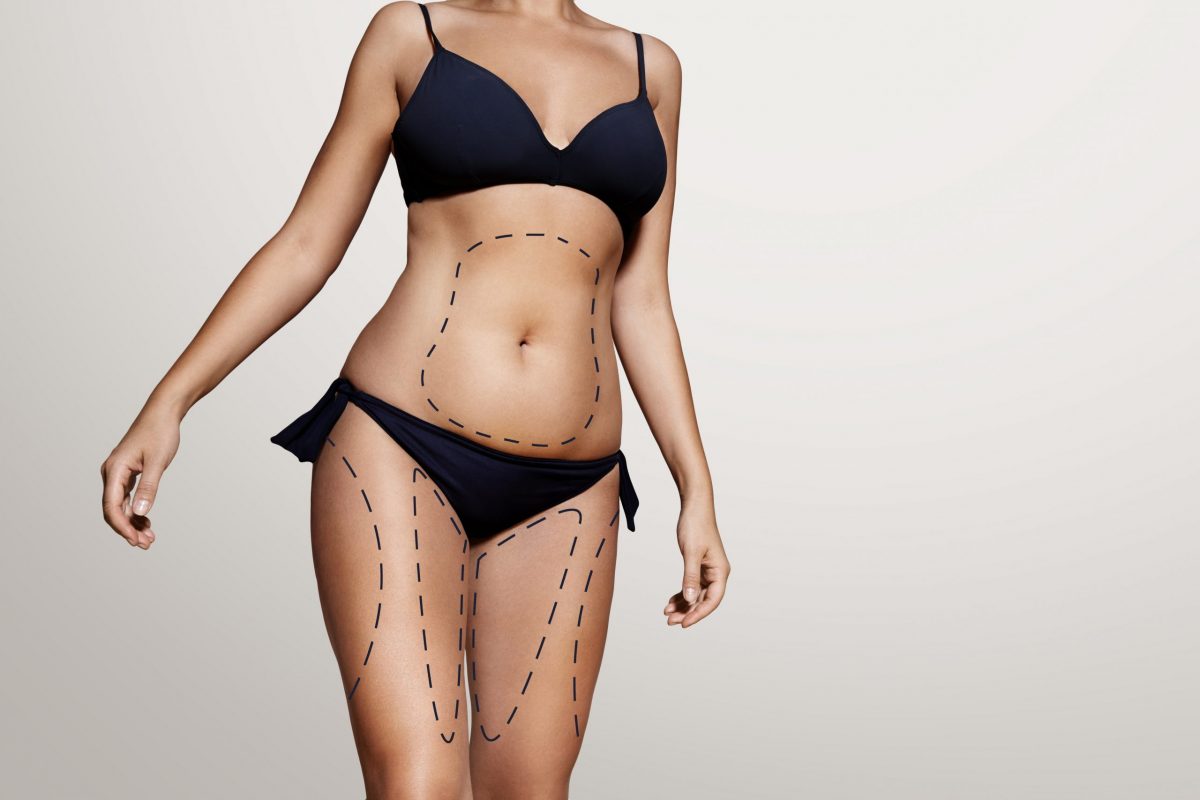Liposuction uses a small incision to remove fat from specific places in the body. Liposuction is often performed in the abdomen, thighs, buttocks, chest, and where people carry excess fat due to frequent eating or other lifestyle factors.
Misconceptions About Liposuction
Liposuction is considered a cosmetic procedure, usually done to improve one’s appearance without any medical reason. In other words, if you’re overweight or obese, this isn’t the solution for you — the best way to lose weight is through a healthy diet and exercise.
The Cost of the Procedure
Liposuction procedure costs may entail anesthesia fees, medical tests, medication prescriptions, surgical facility costs, and surgeon’s fees.
Liposuction fees will vary from surgeon to surgeon, depending on the surgeon’s level of expertise, the complexity of the treatment, and the location of their offices.
The American Society of Plastic Surgeons reports that the typical liposuction cost is $3,637. However, other fees, such as anesthesia and surgical space rental, are not included in this estimated range. If you still need to determine the final cost, it will help if you contact the plastic surgeon’s office.
Are You a Good Candidate for Liposuction?
To be a good candidate for liposuction, you should be an adult, around 30% of your optimum weight, with firm, supple skin, decent muscular tone, and healthy body fat. You need to be in good health and free from illnesses that could endanger your life or prevent healing.
In addition, you should be a non-smoker with a good perspective and clear objectives for body shaping.
Liposuction is an option if you’re bothered by stubborn fat deposits in various body parts that won’t cooperate with dietary or physical activity changes.
Preparations for the Procedure
Talk to your doctor about your expectations regarding the operation before it happens. Your surgeon will examine your health records and ask questions about any illnesses and medications, nutrients, or herbs you currently use.
Per medical advice, most medications should be stopped at least three weeks before surgery, including blood thinners and nonsteroidal anti-inflammatory drugs (NSAIDs). In addition, you may need to visit the lab for a few tests before your surgery.
When liposuction involves removing a small amount of fat, the procedure could be performed at an outpatient clinic or doctor’s office. However, surgery and an overnight stay in the hospital may be necessary if a significant amount of fat is to be extracted or if additional treatments are to be performed simultaneously. You should have someone to take you home and remain with you for the first night following the surgery.
What Should You Expect During the Procedure?
Some liposuction techniques may need local anesthesia, which only affects the treated area. General anesthesia, which causes unconsciousness during an operation, may be necessary for other medical care. A sedative may be administered to you, usually through an IV, to keep you comfortable and tranquil during the procedure.
What Are the Results?
In most cases, the edema after liposuction decreases in a few weeks. During this point, the treated region should have a flatter and more refined appearance. You should expect the treated zone to have a slimmer appearance in a few months.
Frequently Asked Questions
Is the Liposuction Procedure Safe?
There are potential dangers with liposuction as there are with any surgical operation. Your doctor will provide a complete breakdown of the possible complications associated with your chosen liposuction technique during your appointment.
How Long Does It Take to Recover After the Procedure?
It usually takes a few days for the patient to feel well enough to return to work, and it usually takes another two to four weeks before they can start exercising again. Immediately following your liposuction operation, you will be fitted with a surgical compression garment that will need to be worn for several weeks.
The duration and intensity of your discomfort can reduce if you carefully follow your surgeon’s aftercare advice. Healing time and the risk of complications can be reduced with proper rest, hydration, and abstinence from smoking.
Will There Be Pain After the Procedure?
Liposuction is a surgical operation, and the initial days after the procedure will be marked by some swelling, soreness, and discomfort. Pain after surgery typically lasts approximately five days, although most individuals feel better within that time frame, and any remaining pain is usually easy to treat.
Does Insurance Cover Liposuction?
Health insurance typically does not pay for liposuction since it is seen as purely cosmetic surgery. However, physicians and surgeons who perform liposuction will often offer the procedure at a lower cost than their private practice rates, making it accessible to a broader range of patients.
What Are the Steps of a Liposuction Operation?
Surgeons perform this procedure by making tiny incisions in the skin and inserting a cannula into the subcutaneous fat. You can remove unwanted fat with this cannula by connecting it to a syringe or vacuum. In most cases, you can expect to leave the facility the same day of the procedure, even if you require an anesthetic.








